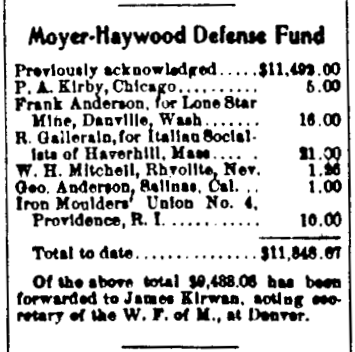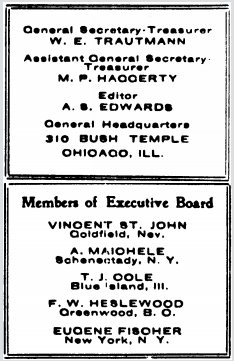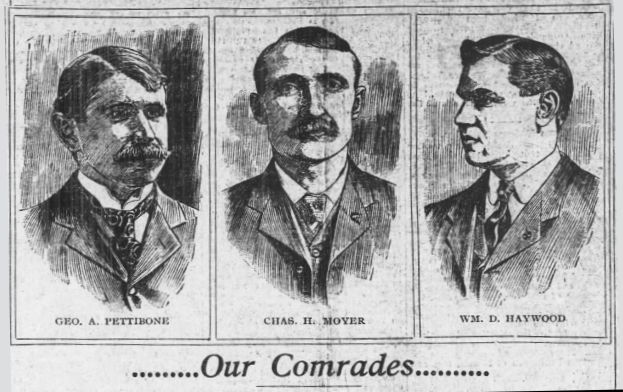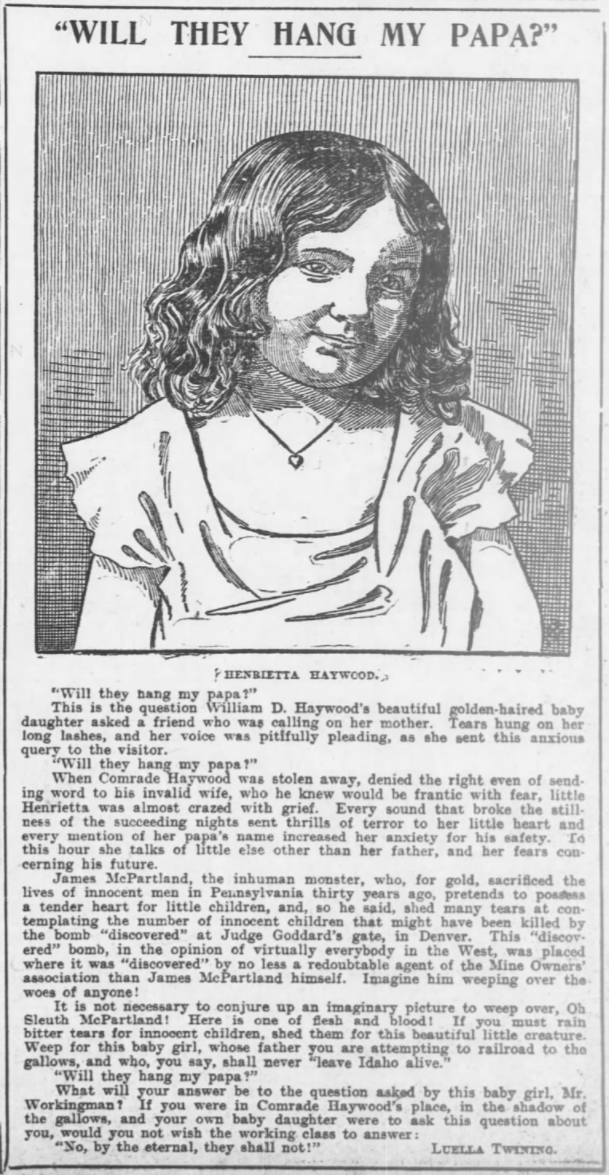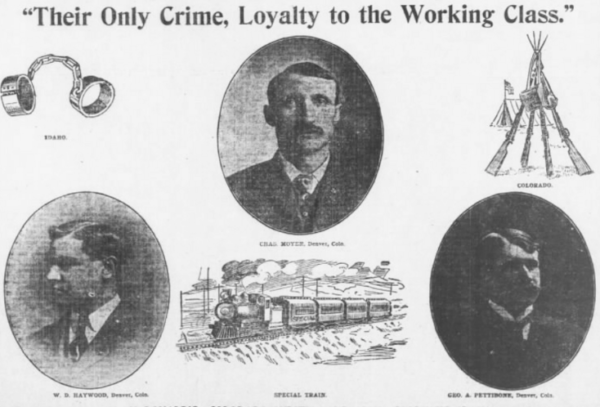The labor giant has slept long,
but is now awakening.
-Eugene Victor Debs
Hellraisers Journal, Sunday April 14, 1907
From The Industrial Union Bulletin: Roosevelt’s “Square Deal”

The official publication of the Industrial Workers of the World yesterday discussed the remarks of President Roosevelt regarding the citizenship qualities of Comrades Debs, Moyer and Haywood, and included the statement of Bill Haywood, made in response to being termed an “undesirable citizen” by the President of the United States on the eve of his trial.
IS THIS A “SQUARE DEAL”?
Nothing has happened in Theodore Roosevelt’s career as president of the United States that so entirely discredits his fitness for that position as the recent reference by him to Debs, Moyer and Haywood, as being “undesirable citizens.” The two latter are soon to appear in court and stand trial for their lives, yet the “chief magistrate” of the nation, oblivious to the ordinary rule that anyone charged with crime is presumed to be innocent until his guilt is proven, has made public an opinion that must be prejudicial to their interests. It is an outrage that ranks with the unlawful acts of the mine owners and McParlands of Colorado. Neither of these men has ever been convicted of any crime, yet their case is prejudged in advance of their appearance in court. It is a shameful and brutal spectacle.
The facts are these: The president addressed a letter to Congressman James S. Sherman in which certain matters in dispute between himself and the railway magnate, E. H. Harriman; entirely without warrant and apparently with the sole purpose of creating prejudice against Moyer and Haywood, he denounced the conduct of Harriman in the following terms:
It shows a cynicism and deep-seated corruption which make the man uttering such statements, and boasting, no matter how falsely, of his power to perform such crime, at least as undesirable a citizen as Debs, or Moyer or Haywood.
Fellow-worker Haywood, awaiting his trial in Idaho, gave out the following statement:
I do not desire to make an extended statement with regard to President Roosevelt’s reference to me in his letter to Congressman Sherman.
The president says that I am an “undesirable citizen,” the inference being that, as such, I should be put out of the way. His influence is all-powerful, and his statement, coming as it does, on the eve of my trial for my life, will work me irreparable injury, and do more to prevent a fair trial than everything that has been said and done against me in the past.
President Roosevelt is the leading exponent of the doctrine of “fair play and a square deal,” but his reference to me in his letter to Sherman demonstrates that he does not practice what he preaches.

